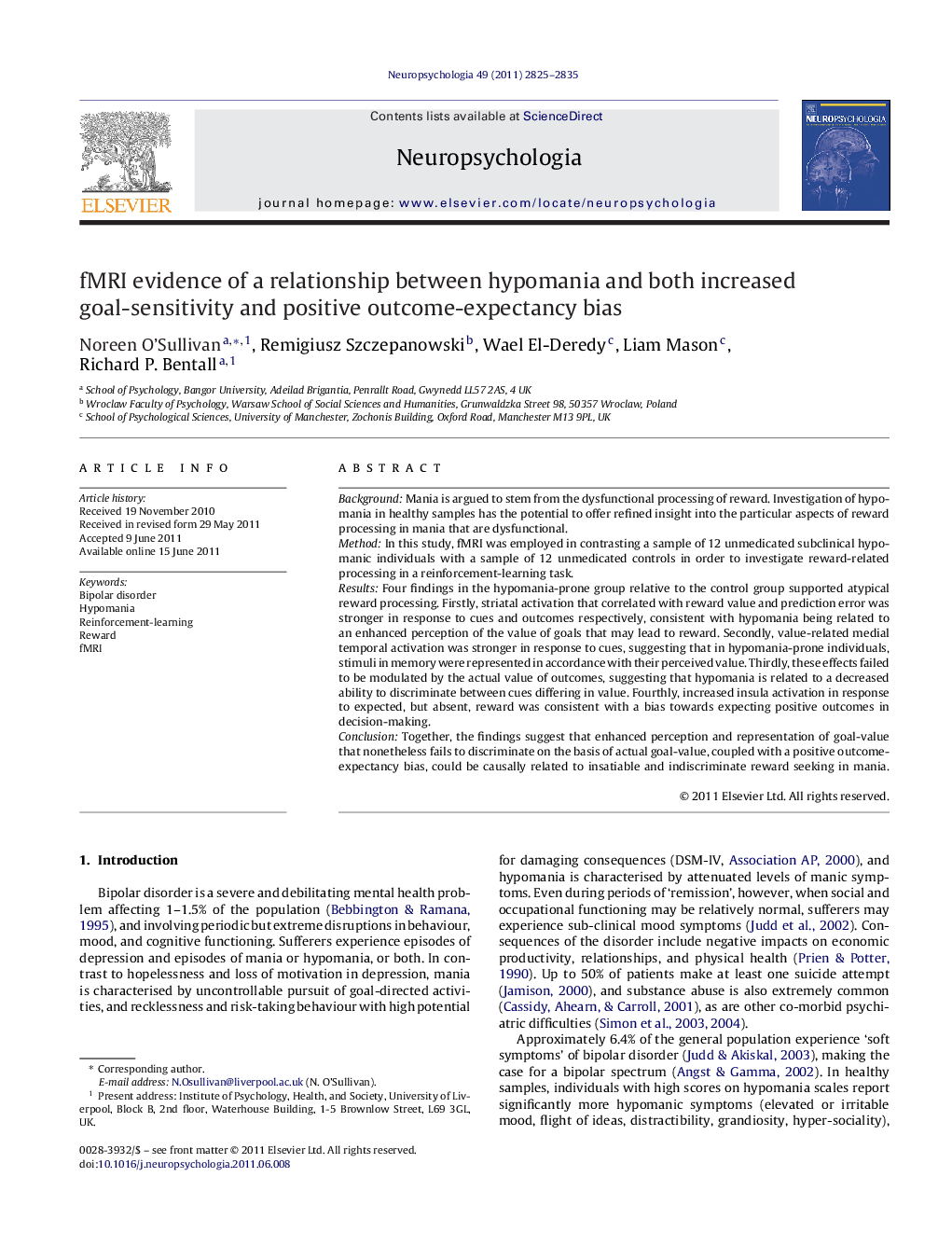| Article ID | Journal | Published Year | Pages | File Type |
|---|---|---|---|---|
| 944883 | Neuropsychologia | 2011 | 11 Pages |
BackgroundMania is argued to stem from the dysfunctional processing of reward. Investigation of hypomania in healthy samples has the potential to offer refined insight into the particular aspects of reward processing in mania that are dysfunctional.MethodIn this study, fMRI was employed in contrasting a sample of 12 unmedicated subclinical hypomanic individuals with a sample of 12 unmedicated controls in order to investigate reward-related processing in a reinforcement-learning task.ResultsFour findings in the hypomania-prone group relative to the control group supported atypical reward processing. Firstly, striatal activation that correlated with reward value and prediction error was stronger in response to cues and outcomes respectively, consistent with hypomania being related to an enhanced perception of the value of goals that may lead to reward. Secondly, value-related medial temporal activation was stronger in response to cues, suggesting that in hypomania-prone individuals, stimuli in memory were represented in accordance with their perceived value. Thirdly, these effects failed to be modulated by the actual value of outcomes, suggesting that hypomania is related to a decreased ability to discriminate between cues differing in value. Fourthly, increased insula activation in response to expected, but absent, reward was consistent with a bias towards expecting positive outcomes in decision-making.ConclusionTogether, the findings suggest that enhanced perception and representation of goal-value that nonetheless fails to discriminate on the basis of actual goal-value, coupled with a positive outcome-expectancy bias, could be causally related to insatiable and indiscriminate reward seeking in mania.
• Hypomania was related to stronger reward related activity in striatum. • Stronger striatal activation suggests enhanced perception of the value of goals. • Hypomania was related to reduced discrimination between reward and neutral outcomes. • Insula activity following unexpected absence of reward was related to hypomania. • Increased insula activity is consistent with a positive outcome-expectancy bias.
